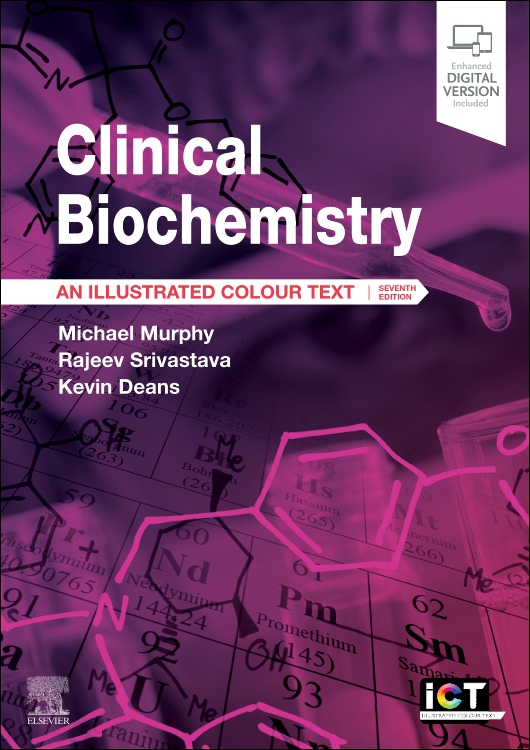
Clinical Biochemistry, 7th Edition
Paperback

The seventh edition retains the same practical and patient-centred approach that has made previous editions so popular. Despite its accessibility, there is no 'dumbing-down': all essential information is covered. The illustrations, which are a major part of its visual appeal, have been revisited and updated.
This book is an ideal source for understanding the background to biochemical tests and how they should be interpreted. It will help you apply your learning in the clinical context. The same basic structure that has proved successful previously has been retained; sections on core biochemistry, endocrinology and specialised investigations follow an introductory section.
-
- Clinical notes and case histories on help you to apply learning to clinical practice
- Covers the bulk of routine analyses and their relevance to the clinical setting
- Addresses real-world practicalities, such as how modern hospital laboratories work, and how test results should be interpreted
- Each topic presented on a richly illustrated two-page spread for easier understanding
- MCQs for each chapter
- Accompanying e-book now includes some animations
-
Part 1: Introducing clinical biochemistry
1. The clinical biochemistry laboratory
2. The use of the laboratory
3. Interpretation of results: general
4. Interpretation of results: diagnosis
5. Interpretation of results: monitoring
6. Analytical aspects
Part 2: Core biochemistry
7. Fluid and electrolytes: basic concepts
8. Water and sodium balance: physiological mechanisms
9. Hyponatraemia: pathophysiology
10. Hyponatraemia: assessment and management
11. Hypernatraemia
12. Hyperkalaemia
13. Hypokalaemia
14. Intravenous fluid therapy
15. Investigation of renal function (1)
16. Investigation of renal function (2)
17. Urinalysis
18. Proteinuria
19. Acute kidney injury
20. Chronic kidney disease
21. Acid–base: concepts and vocabulary
22. Metabolic acid–base disorders
23. Respiratory and mixed acid–base disorders
24. Acid–base disorders: diagnosis and management
25. Proteins and enzymes
26. Immunoglobulins
27. Myocardial infarction
28. Liver function tests
29. Jaundice
30. Liver disease
31. Glucose metabolism and diabetes mellitus
32. Diagnosis and monitoring of diabetes mellitus
33. Diabetic ketoacidosis
34. Hypoglycaemia
35. Calcium regulation and hypocalcaemia
36. Hypercalcaemia
37. Phosphate and magnesium
38. Metabolic bone disease
39. Osteoporosis and fragility fractures
Part 3: Endocrinology
40. Endocrine control
41. Dynamic function tests
42. Pituitary function
43. Growth disorders and acromegaly
44. Thyroid pathophysiology
45. Hypothyroidism
46. Hyperthyroidism
47. Adrenocortical pathophysiology
48. Hypofunction of the adrenal cortex
49. Hyperfunction of the adrenal cortex
50. Gonadal function
51. Subfertility
Part 4: Specialised investigations
52. Nutritional assessment
53. Nutritional support
54. Parenteral nutrition
55. The metabolic response to injury
56. Gastrointestinal disorders
57. Disorders of the pancreas
58. Iron
59. Zinc and copper
60. Therapeutic drug monitoring
61. Toxicology
62. Metal poisoning
63. Alcohol
64. Ascites
65. Pleural fluid
66. Cerebrospinal fluid
67. Identification of body fluids
68. Lipoprotein metabolism
69. Clinical disorders of lipid metabolism
70. Hypertension
71. Cancer and its consequences
72. Tumour markers
73. Multiple endocrine neoplasia
74. Hyperuricaemia
75. Myopathy
76. Fetal monitoring and prenatal diagnosis
77. Pregnancy
78. Antenatal screening
79. Screening the newborn for disease
80. Paediatric biochemistry
81. Inborn errors of metabolism
82. Methods involving antibodies: immunoassay
83. Methods to separate and identify molecules
84. Selected inherited disorders

 as described in our
as described in our 